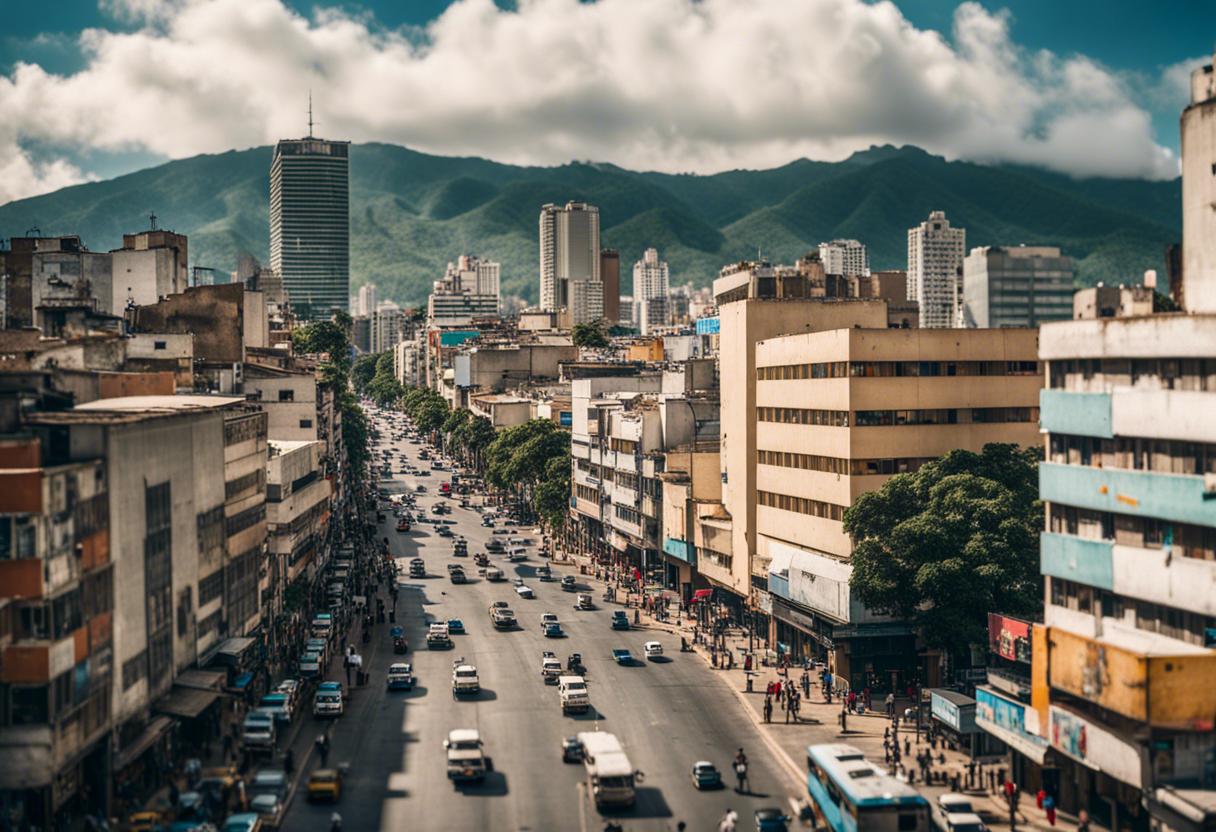In reaction to intensifying critiques following the contested election last week, Venezuelan President Nicolás Maduro has pledged to crush any threat to his position, affirming that he will go to any length necessary to safeguard his ‘revolution’. He states that over 2,000 individuals have been detained since the vote on July 28th. However, according to human rights organisations, there have been at least 22 death incidents.
During the past weekend, the European Union expressed its deep concern over the increasing volume of random arrests in Venezuela and the persecution of the opposition. The opposition party claims, supported by evidence, that its nominee, Edmundo González, was victorious in the election. The EU’s foreign policy head, Josep Borrell, implored the Venezuelan administration to cease random arrests, repression, violent threats against opposition members and civil society, and to release all political detainees.
Meanwhile, the disputed election results have led to a crisis for Venezuela’s neighbouring countries. The foreign minister of Canada, Mélanie Joly, joined the critics and expressed condemnation of the ongoing violence on Sunday. Joly said that witness accounts from citizens and international observers give compelling evidence that the election results announced by Maduro’s government do not truly represent the people of Venezuela’s wishes.
Maduro, who alleges that he was the election winner but has yet to offer evidence to back his claim, dismissed such accusations on Sunday at a military event in Caracas. He blasted the EU, calling it a ‘disgrace’, while addressing members of the Bolivarian National Guard, a military subdivision involved in the suppression. Maduro awarded medals to officers he said were injured while handling riots following the election. He spoke of combating, overpowering, suppressing and demolishing an alleged coup attempt in Venezuela.
Maduro, the successor to Hugo Chávez following his death in 2013, impelled military heads to orchestrate a ‘total deployment’ of their forces in response to the opposition’s challenge.
The President of Venezuela previously assured armed service members, outfitted with guns and riot gear, of his intent to fight against criminals and fascists to prevent them from taking control of the country. He declared his readiness to employ any means necessary and voiced his hope for the military to uphold order, law, and the constitution. On Sunday, an assembly seemed arranged to portray a united military front amidst calls by political rivals encouraging the armed forces to renounce their allegiance to President Maduro, the contentious successor of Mr Chávez. This followed a mass pro-government demonstration at the presidential palace the day before, orchestrated to project similar public solidarity.
As the government escalates its confrontational discourse and arrests rise, it has not halted Maduro’s opponents from reoccupying the streets on Saturday, galvanized by María Corina Machado, the vibrant opposition figurehead who reignited Mr González’s campaign. Despite six days of harsh suppression, Machado remained hopeful, rallying her supporters by affirming their resilience and determination to see their cause through.
Mr González, in his contribution to The Economist, rebutted Maduro’s accusations that his campaign instigated violence and was part of a plot to illicitly seize power. He maintained that supporting any form of violence was contrary to both his personal principles and his historical attitude, let alone an insurrection. Instead, he accused the governing party of being ready to employ violence to maintain their hold on power. The 74-year-old diplomat, who consented to run for president after Machado was prohibited from participating in elections, argued that the elections had garnered him a definitive majority. He implored for an immediate fair, impartial evaluation of the election results.
Although Mr González’s victory has been recognized by the US and other nations, Colombia and Brazil, fellow neighbours of Venezuela to the Left Wing, have requested Maduro to share extensive electoral figures to mollify the escalating crisis. Yet, Mr Maduro, widely criticized for a devastating economic crisis that has forced approximately eight million nationals to seek refuge overseas, has shown no signs of consenting to share this information openly or to give up his position.
On Sunday, he made derogatory remarks towards a political adversary, calling him “a dirty rodent”, and labelled his opponents as “evil powers”. He went further, likening his enemies to notorious figures such as Adolf Hitler, Benito Mussolini, and Francisco Franco, while firmly stating “I will never give in”, according to The Guardian.

